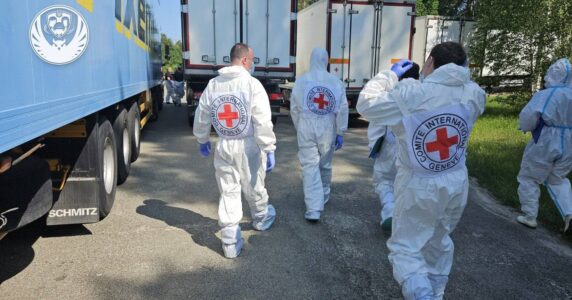Navigation and useful materials
Monday, April 4, effectively marked the 30-day countdown to the announcement of Russia’s technical default. Russia’s Finance Ministry was supposed to make payments on Eurobonds worth more than USD 600 million, but was unable to do so — the bank blocked the transfer of funds in foreign currency. The Ministry of Finance had to make payments in roubles, although this is not technically allowed.
What Does It Mean?
Eurobonds are one of the ways for the government to raise funds for the needs of the state in foreign markets. You print the bonds, sell them, and spend the money on specific programs. It is essentially a loan for which you pay interest, and when the bonds expire, you need to redeem them.
Default means the inability of the borrower to meet its obligations to the lender. In this specific case, this is about failure to pay a substantial amount of interest to the holders of the bonds. If payments on the bonds are to be paid in USD, it means specifically USD, not Russian roubles.
In addition, the payments in rouble were made at the exchange rate of the Russian Central Bank, which has no real substance. This is also emphasized by Western financiers. The current attitude of the civilized world to Russia and its national currency is clear by the way these countries responded to the offer to pay for gas in roubles — they were not excited, to put it mildly.
Thus, for the first time since the beginning of the war, Russia has not paid its sovereign debt. This automatically triggers a 30-day grace period when the unscrupulous borrower has the last opportunity to make the payment. Failure to do so will result in a technical default. And in the current circumstances, this is one step away from a sovereign default.
Because what is a technical default? This is when you come to the store, pick up the goods, go to pay at the checkout counter and find out that you left your wallet behind. But when the next day you do not come back to pay and instead avoid the store because the wallet at home turned out empty, and you have no way to pay for the goods, this is a sovereign default. Russians have already been through that in 1998, and this memory is far from pleasant.
Why did Russia fail to pay?
The possibility of default was first discussed in March, when Russia had to pay USD 117 million for government bonds. Back then, the money was found — the US Treasury allowed to use funds from frozen Russian accounts for payment. What is more, Russia could continue settling its debt this way almost until the end of May. This required an agreement with the US Treasury, but this was only about delaying the inevitable.
On Monday, the same trick did not work. In response to the atrocities committed by Russians in Bucha, the US Treasury decided to block that loophole and prohibited settling debts with frozen reserves. The Russians were faced with a choice of paying in roubles or using the available dollars, which were evidently going to be used for other purposes, such as financing the war. Russia made its choice and paid in roubles, taking a step towards default.
What will it mean when the default is declared?
For Russia, default is just a formal definition of the process already happening in the country. Business is leaving the country en masse, investments are being stopped, and international financial institutions are suspending cooperation with Moscow. The Russian economy rolled back decades.
In 1999, the announcement of default caused panic among the population, which lost access to their savings, the Russian rouble collapsed more than three times, inflation skyrocketed to 84%.
What is the situation now? In just over a month of the war, inflation has reached almost 17% in annual terms. And this despite the fact that sanctions have not yet begun to work at full capacity. The restrictions imposed by the Central Bank on the foreign currency accounts of ordinary Russians are enormous.
The Russian economy now looks like a gas station with a fuel leak. All you need is to light a match for everything to go up in flames. And the default can be a small spark. And if the current resolution of the European Parliament, in which MEPs demand a full embargo on Russian energy resources, will lead to actual steps, the Russian gas station will burn out very quickly.
If you have found a spelling error, please, notify us by selecting that text and pressing Ctrl+Enter.


